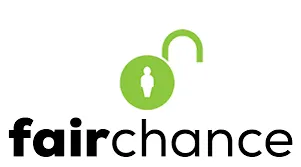
Summary of the Article
The article discusses the updates to the California Fair Chance Act (FCA) that came into effect on October 1, 2023. The FCA, known as the “ban the box” law, governs how employers can inquire about and consider job applicants’ criminal history. The new changes provide both clarity and new obligations to employers in this domain.
Key Points of the FCA:
- Employers cannot inquire about an applicant’s criminal history until a conditional employment offer is made
- Certain criminal convictions, like juvenile offenses or older misdemeanor marijuana convictions, cannot be considered in hiring decisions
- If a background check reveals criminal history that causes the employer to reconsider, a three-step assessment must be followed before rescinding an offer

2023 Changes to the FCA:
Clarification of Definitions:
- “Employer” now includes entities evaluating an applicant’s criminal history on behalf of an employer, staffing agencies, and entities selecting workers from a pool
- “Applicant” is broadened to include existing employees undergoing background checks due to ownership, management, or policy changes
- Voluntarily disclosed criminal history cannot be considered before a conditional offer is made
- Employers cannot state in materials that persons with criminal histories will not be considered (e.g., “Must have clean record”)
- Violating the prohibition against pre-offer criminal history inquiries can cause the employer to lose the ability to consider criminal history in hiring decisions
Conducting Individualized Assessments:
- Employers must conduct a detailed analysis, considering aspects like the specific conduct leading to the conviction, context, and any mitigating factors like disability, trauma, or age at the time of the offense
- Other factors include the time elapsed since the offense or release, the nature of the job applied for, and evidence of rehabilitation or mitigating circumstances
- Employers may request additional information from applicants for the analysis, though applicants are not obliged to provide it
Timeframes for Applicant Responses:
- Applicants must have at least five business days to respond to pre-adverse action notices
- Employers should use trackable delivery methods for notices and adhere to specified timelines for deeming notices received, which vary depending on the method of delivery and recipient location
- If applicants dispute the conviction history and are seeking evidence to support their claim, they are allowed an additional five business days to respond before the employment offer can be finally rescinded
Implications for Employers:
Employers should urgently review and update their background check policies considering the new regulations.
Legal counsel should be engaged to navigate the complexities of the updated law and its amendments.
Employees involved in hiring processes must be trained and monitored to ensure compliance with these changes.
Article titled “New Regulations Change and Clarify Criminal Background Check Procedures for California Employers” was originally published by Duane Morris LLP & Affiliates.
Disclaimer: This Alert has been prepared and published for informational purposes only and is not offered, nor should be construed, as legal advice. For more information, please see the firm’sfull disclaimer.
